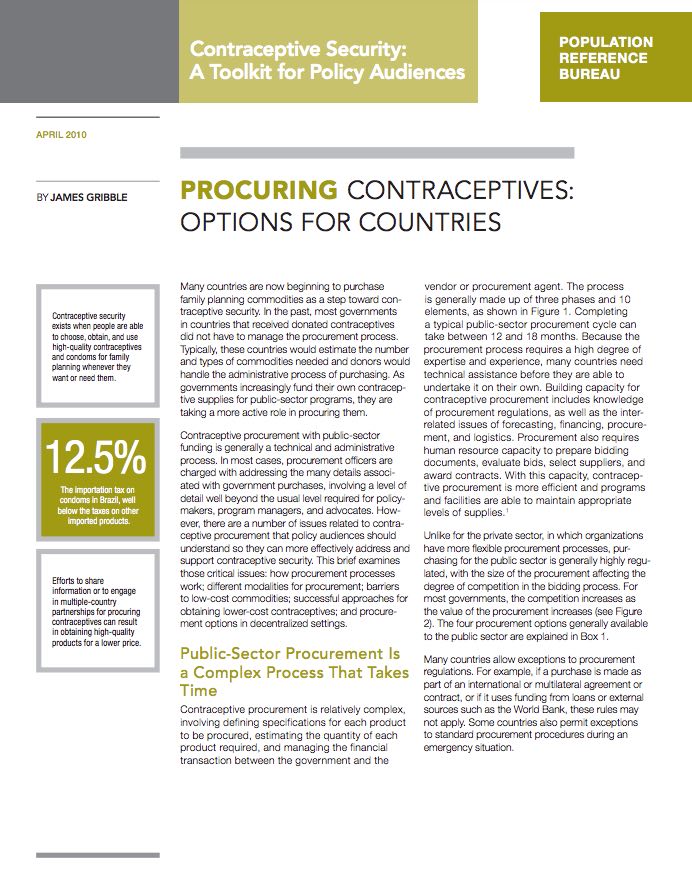
Procuring Contraceptives: Options for Countries
Date
May 27, 2010
Author
(May 2010) Many countries are beginning to purchase family planning commodities as a step toward ensuring more secure contraceptive supplies. In the past, most governments in countries that received donated contraceptives did not have to manage the procurement process. Typically, these countries would estimate the number and types of commodities needed and donors would handle the administrative process of purchasing. As governments increasingly fund their own contraceptive supplies for public-sector programs, they are taking a more active role in procuring them.
Contraceptive procurement with public-sector funding is generally a technical and administrative process. In most cases, procurement officers are charged with addressing the many details associated with government purchases, involving a level of detail well beyond the usual level required for policymakers, program managers, and advocates. However, there are a number of issues related to contraceptive procurement that policy audiences should understand so they can more effectively address and support contraceptive security. This brief examines those critical issues: how procurement processes work; different modalities for procurement; barriers to low-cost commodities; successful approaches for obtaining lower-cost contraceptives; and procurement options in decentralized settings.
This is one of seven PRB policy briefs that make up Contraceptive Security: A Toolkit for Policy Audiences, a series designed to explain different aspects of contraceptive security to policymakers, program managers, media, and civil society. Contraceptive security exists when people are able to choose, obtain, and use high-quality contraceptives whenever they want or need them.
The other briefs in the toolkit are:
- Contraceptive Security For Policy Audiences: An Overview (PDF: 558KB)
- Planning for Contraceptive Security: Start With SPARHCS (PDF: 699KB)
- Financing Contraceptives: A New Funding Environment (PDF: 694KB)
- Supply Chain: Getting Contraceptives to Users (PDF: 758KB)
- Policy Environment: Understanding the Context for Contraceptive Security (PDF: 653KB)
- Priority Actions and Recommendations for Contraceptive Security (PDF: 374KB)
James Gribble is vice president for International Programs at the Population Reference Bureau.

 ">
">